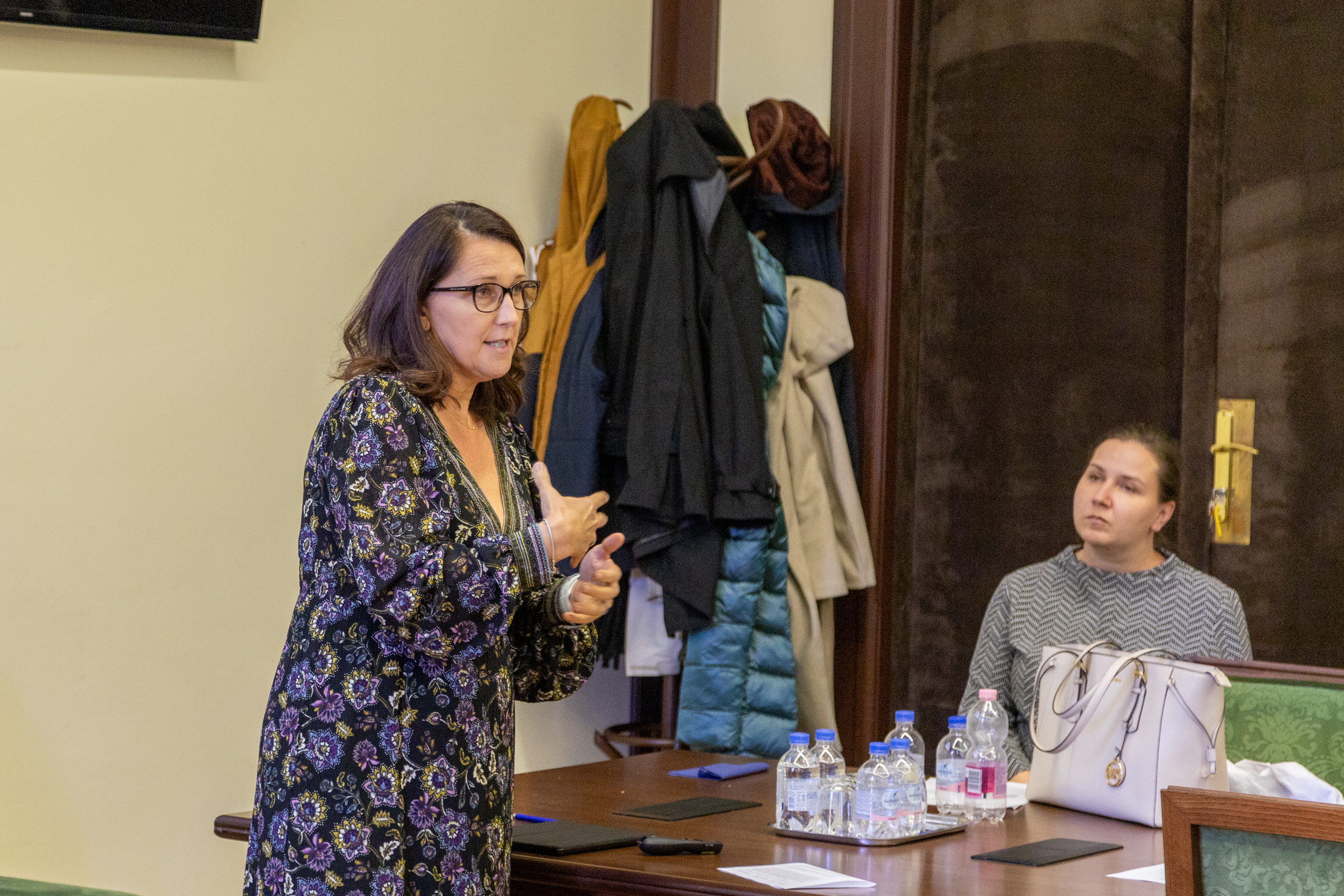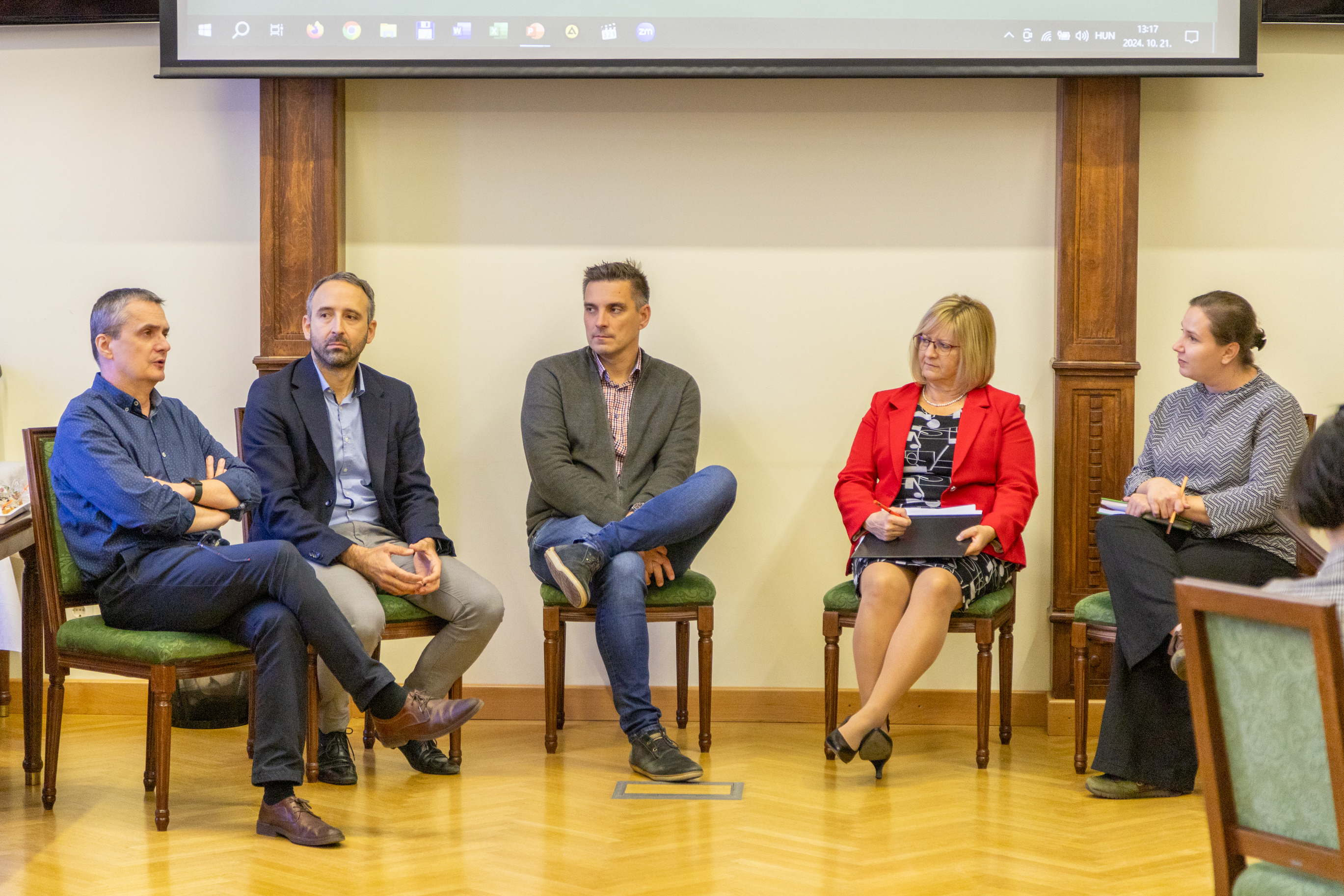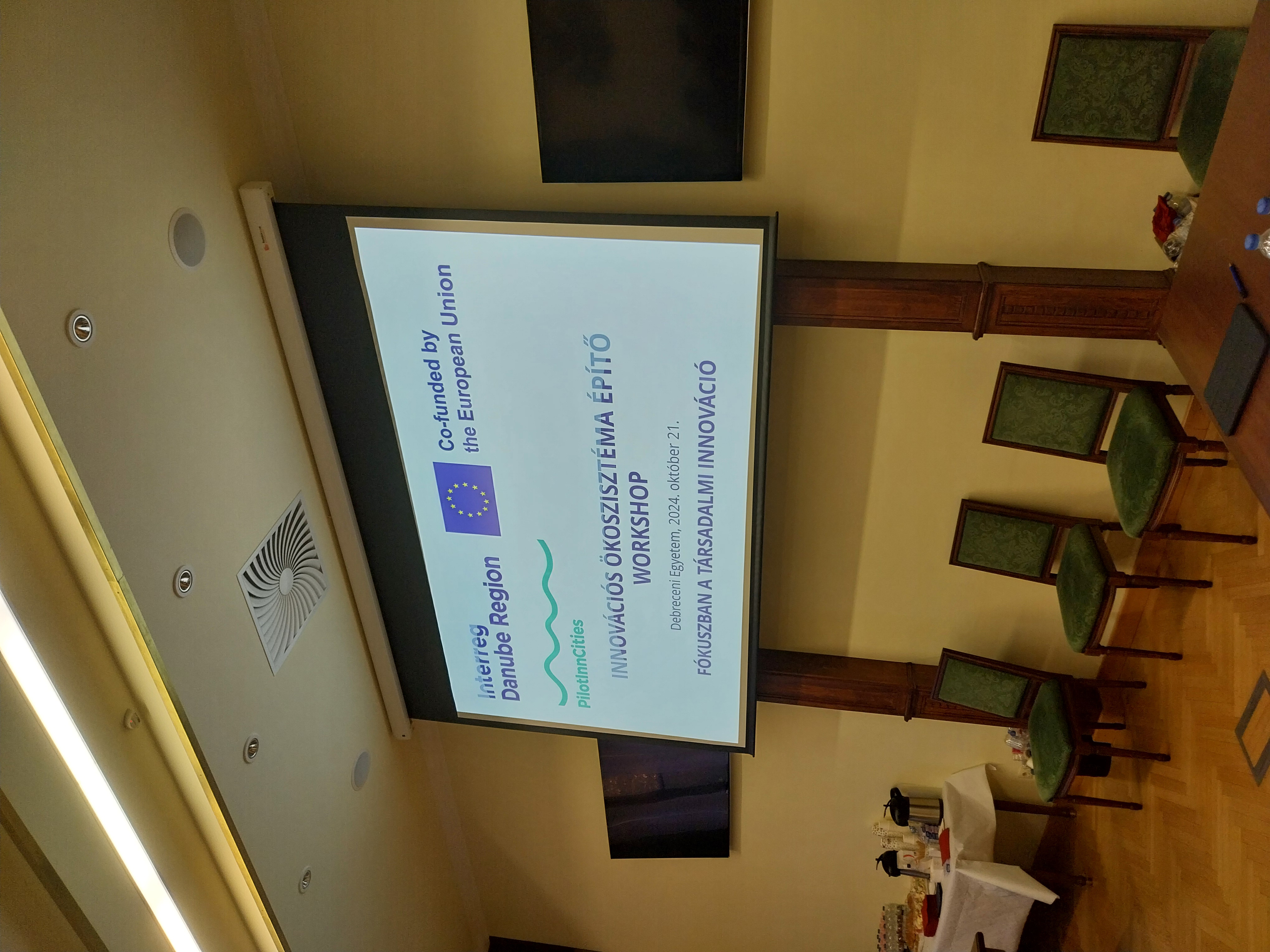The social innovation ecosystem-building workshop organized within the framework of the PilotInnCitites (Pilot-based Innovation Ecosystems for Smart Cities) project examined the regional ecosystem of social innovation, the possible frameworks of cooperation and practical experiences. The event, supported by the INTERREG Danube Region Program, was hosted by the University of Debrecen on October 21, 2024. The all-day professional program was organized by the Neumann Technology Platform and the HROD Center for Community Economic and Social Development, and we were happy to join the speakers at the invitation of the latter organization.
In the first half of the program, Dr. Ibolya Czibere, head of the Institute of Political Science and Sociology of the University of Debrecen, gave a lecture on the presence of social innovation in higher education. He emphasized that the academic sector is not only a researcher of social innovation activities, but also plays a significant role in the diagnosis of social problems, impact measurement, and prognostication of social changes.
Károly Arisztid Ditzendy, as the director of the HROD.net organization responsible for the professional implementation of the project, explained the professional objectives of the PilotInnCities project. He emphasized: for HROD, it was an important aspect for social innovation to appear within the project, which is why the third stop of the workshop series, in Debrecen, was dedicated to this area.
On behalf of SIXAGON, Eszter Miklós was present at the workshop, who led the round table discussion on "Social innovation, partnership, cooperation". The purpose of the conversation was to learn about the supporting and hindering factors that influence social innovation activities. Among the members of the panel discussion, Dr. Ibolya Czibere highlighted the noticeably slower operation of the academic sector compared to the economic sector, while Dávid Kiss (professional head of the Hungarian Charity Service of the Order of Malta, Presence Program) brought up the inflexible rules for using the available funds. Managing director Zoltán Pécskay, representing EDC Debrecen, also participated in the discussion, who reported on Debrecen's urban development plans to those present.
In the second part of the workshop, social innovation projects and experimental developments were presented. Eszter Miklós within the framework of the Social Innovation National Laboratory (TINLAB) and with the partnership of SIXAGON, Let's Be the Number Queen! reported on the development of the project, while Melinda Gemza presented the pilot development plan of the recently launched Taboo-free zone - sex education drama workshop project.
The event provided a great opportunity to strengthen our existing professional relationships with TINLAB and EDC Debrecen, and we had the opportunity to get to know new professional partners and social innovation projects. Thanks to HROD for the opportunity to participate!






